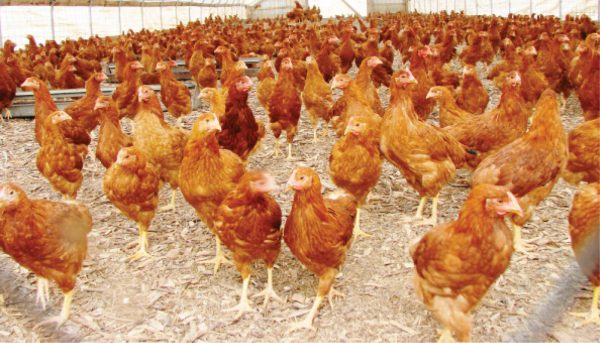Some Nigerians are complaining about the high cost of living occasioned by the recent hike in the pump price of petrol. They spoke with the News Agency of Nigeria (NAN) on Sunday in Abuja. An economic expert, Dahiru Garba, said that the fuel price hike from N897 per litre to N1, 030 per liter will push more Nigerians into poverty. Meanwhile, some consumers of eggs and meat have decried the persistent rise in the price of eggs and various kinds of meat, especially livestock. Some of them, who spoke to journalists in Abuja on Sunday, said the price increase affected consumption, especially for children who needed the protein. They appealed to the government to assist in curbing the high prices to meet the purchasing power of consumers. A consumer, Christiana Agede, said a kilo of cow meat, formally sold between N4,500 and N5,000, now goes for N6,500 and N7,000. Ms Agede said she rarely patronised the sellers because of her low purchasing power and that eggs were her family’s respite for meat, but she stopped buying when the price skyrocketed.
”We now buy brisket bones as alternative to meat in my house,” said Ms Agede. ”I prefer it because when you buy at least N1,500 worth of brisket bones, it looks bigger and it is more nutritious.” My children do not like it but I have convinced them to always consume it because of its nutritional value,” she said. Henrietta Daniel, a single parent, said the high cost of eggs had made her remove it from her children’s food menu. Eggs are too expensive, and I can no longer afford them. The federal government should help us find lasting solutions to these price increases,” she said. Adaeze Asiji, a consumer, said the price of chicken had also skyrocketed, as a kilo of chicken formerly sold between N3,500 and N4,000 was now between N5,000 and N6,500. Elizabeth Adodi, another consumer and a civil servant, decried the continuous increase in meat prices.
Garba said that the sudden increase in the pump price of petrol by the Nigeria National Petroleum Company Limited (NNPC Ltd.) and marketers was beyond a simple fuel price adjustment. He said that it would have a far-reaching impact on Nigeria’s private sector, trade and the already suffering Nigerian masses. He said that without government interventions, the economic and social repercussions of the price hike would be severe and long-lasting, pushing more people into poverty. “What we will witness is the immediate high cost of transport, which will lead to higher cost of food, businesses will suffer, some may fold up and inflation will rise. In the long term, it could pose challenges for small and medium-sized enterprises (SMEs) and the agricultural sector,” he said. He urged the Federal Government to acknowledge these implications and consider measures to reduce the impact. He suggested targeted incentives for energy efficiency, a halt to wasteful expenditure, and reducing cost of governance. “Without such interventions, the economic and social repercussions of this price hike could be severe and long-lasting, pushing more people into poverty,” he said. A retired widow, Mary Chatta, complained about the high cost of living. My children are not working, they still depend on my pension which has not been increased according to the minimum wage act. Imagine buying one bag of rice for over N100,000. We no longer feed daily, I am scared and I do not know how I will survive,” Chatta said.
She urged the government to look into the economic situation in the country. “I know that the government can do something for the masses to make it easier, but pensioners also have to survive.” Chatta said. A frozen food trader, Mrs Oyiza Malik, said that the increase in petrol prices has added to her transportation cost. “I am struggling to afford necessities like food and rent. I am finding it difficult to balance my budget, We expected so much from this government, but what we are seeing now is the least we expected. The situation is even more dire for low-income households who are already struggling to survive on meager earnings,” she said. A taxi driver, Emeka Uzor, said that the price hike had taken away the little savings he had, as he no longer make profit. “ I will just stop this business and look for something else to do. Passengers have been complaining that the price of transport is too high, but what choice do we have when we are buying fuel for N1,250 per litre. From Banex to Gwarimpa is now N500 and it used to be N200, from Kubwa to Berger between N1,000 to N1,500 which is not supposed to be so,” Uzor said.

